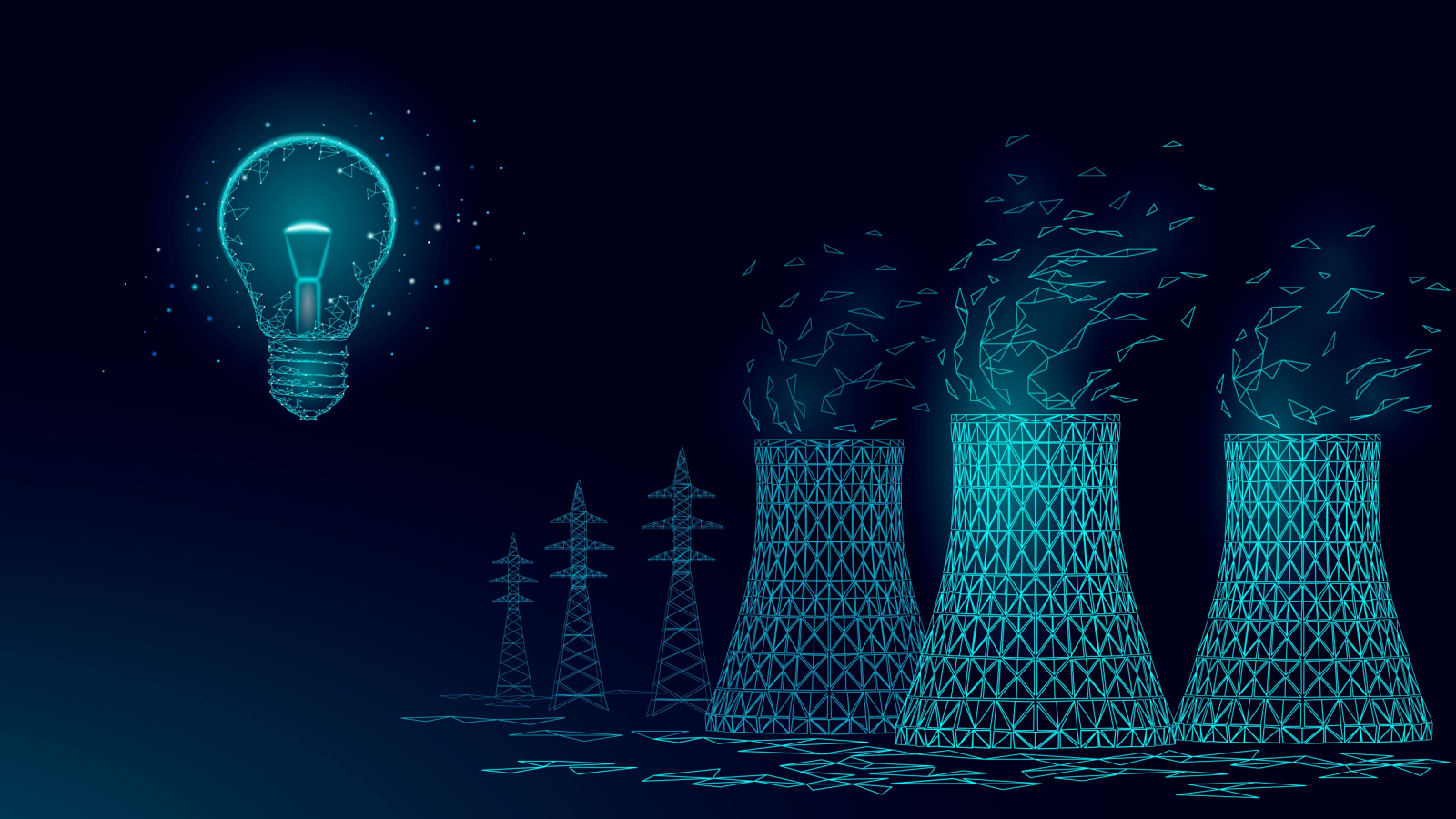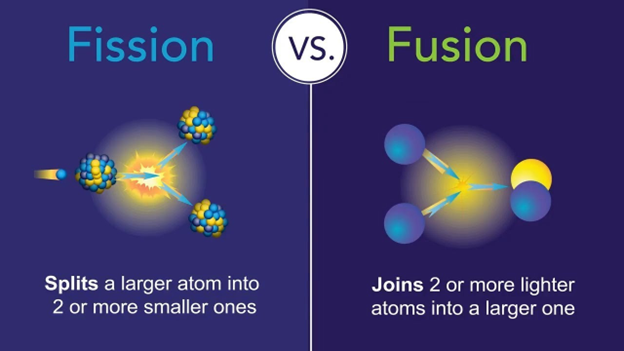Editor’s note: “Nuclear Power Breakthrough Makes “Limitless” Energy Possible” was previously published in May 2023. It has since been updated to include the most relevant information available.
For a moment, imagine a world of limitless energy – one where energy is so abundant that everyone can power their homes and businesses for mere pennies.
These days, it’s tough to imagine a world like that. Last winter, the average U.S. heating bill was $1,000.
But thanks to a potential world-changing scientific breakthrough, the ostensibly utopian world of limitless energy could soon become a reality.
Prescient investors who place the right bets on the right stocks in this industry could mint fortunes over the next few years.
That’s why both Microsoft (MSFT) – the world’s second-most valuable company – and ChatGPT’s creator Sam Altman are both betting big on this very limitless energy breakthrough right now.
Just last week, Microsoft announced a huge deal to start buying a ton of this limitless energy as soon as 2028.
Interested? You should be…
We’re talking about arguably the biggest scientific breakthrough of our lifetimes. And it could be the biggest investment opportunity of our lifetimes, too.
And it all has to do with nuclear power.
The Power of the Sun
Nuclear power has a bad reputation – and I get it. It has been used to create bombs that have decimated cities and destroyed lives. And when the world tried to capture that power in nuclear power plants, it often ended in catastrophe. And not once, not twice, but time and time again.
Nuclear power deserves its bad rep.
However, not all nuclear power is created equal.
Specifically, there are two types: nuclear fusion and nuclear fission.
To date, everything achieved with nuclear power has revolved around nuclear fission. That involves splitting apart atoms to capture and use the energy produced from the division.
And it’s a very risky and dangerous science for two big reasons.
First, splitting atoms creates chain reactions that must be controlled very carefully. Otherwise, they could cause meltdowns and explosions. Second, fission produces radioactive waste, which needs to be stored correctly to avoid contaminating the surrounding environment.
Nuclear fission is dangerous stuff.
But nuclear fusion is not.
While nuclear fission revolves around splitting atoms, nuclear fusion is all about combining them.
Specifically, nuclear fusion is a process in which atomic nuclei combine to form a heavier nucleus, releasing a large amount of energy in the process. This energy is released in the form of light and heat.
Importantly, nuclear fusion does not depend on any chain reactions and does not produce any radioactive waste. It is entirely stable without any negative byproducts.
It’s the clean, safe version of nuclear power creation.
Fusion Is Better
Moreover, nuclear fusion is simply the better version of nuclear fission. That’s because fusion produces infinitely more energy than fission.
Consider this: The sun is powered by nuclear fusion. At the sun’s core, temperatures reach up to 27 million degrees Fahrenheit – hot enough to allow nuclear fusion to take place. Under these extreme conditions, hydrogen atoms are forced together, forming helium and releasing a tremendous amount of energy. This energy is so powerful that it travels to the sun’s surface, where it then travels another 93 million miles to warm up and light the Earth.
Nuclear fusion is powerful stuff.
Inputting just a few pounds of hydrogen into a nuclear fusion reaction will produce as much energy as burning thousands of pounds of coal or oil. Theoretically, a small cup of hydrogen fuel could power a house for hundreds of years. Extending that thinking, a few nuclear fusion reactors could power the entire world for hundreds upon hundreds of years.
Nuclear fusion is the key to creating limitless energy.
If so, then why are there dozens of nuclear fission reactors in the world, yet zero nuclear fusion reactors?
Because while nuclear fission is a risky science, nuclear fusion is a tough science. Indeed, it’s so tough that no one has figured out how to make a viable nuclear fusion reactor…
…Until December 2022.
A Critical Breakthrough for Nuclear Power
In short, the challenge of nuclear fusion boils down to something called “net energy gain.”
Net energy gain is the difference between the energy consumed by an energy production process and the energy produced by it. It is energy output minus energy input.
Obviously, net energy gain must be positive in order for that energy source to be viable. A negative net energy gain means the energy source consumes more energy than it produces.
And historically, nuclear fusion has suffered from a negative net energy gain.
That’s because the conditions under which nuclear fusion is possible are extremely energy intensive.
Think of it this way: The only places in the universe where nuclear fusion happens naturally are in stars’ cores. These cores have incredibly unique conditions. Namely, they are unimaginably hot. For example, the sun’s core runs at around 27 million degrees Fahrenheit. Those extremely hot temperatures are what sparks nuclear fusion.
Therefore, in order for scientists to replicate nuclear fusion on Earth, they need to create a reactor that gets and stays unfathomably hot. Getting something that hot requires a lot of energy. And so does keeping it that hot.
The Nuclear Future
Given those requirements, the math hasn’t worked out to make nuclear fusion viable. Until recently, every nuclear fusion experiment has resulted in a negative net energy gain.
But late last year, physicists at Lawrence Livermore National Laboratory in California announced that they had created the world’s first nuclear fusion project with a positive net energy gain.
That’s a huge deal. The one obstacle that has kept nuclear fusion from becoming a viable reality has just been removed. The Livermore project has set in motion a multi-decade trend of nuclear fusion technology reshaping the world’s energy system. We now have clear visibility to the world being powered by nothing more than a few nuclear fusion reactors by 2040.
Forget oil and gas. Forget windmills and giant solar farms. In the future, all we may need to power the world is a few nuclear fusion reactors.
Needless to say, the operators of those reactors could be the world’s most valuable companies. Their stocks could be the market’s biggest winners.
And the time to invest in the Nuclear Fusion Revolution is now.
Stay on the Cutting Edge
I like to stay on the cutting edge of world-changing technological developments. That’s where all the big money is made on Wall Street – taking big and bold stakes on early stage companies pioneering breakthrough technologies.
As someone hyper-focused on the cutting edge of tech, I’m foaming-at-the-mouth bullish on nuclear fusion technology.
Nuclear power is the mysterious “limitless energy” source that will solve the world’s energy needs forever. Technical challenges have held it back for decades. But for the first time ever, we are overcoming those challenges.
The result? A nuclear power boom over the next decade, wherein nuclear fusion reactors reshape the world’s energy landscape.
I’m not the only one taking notice.
Just two weeks ago, Microsoft inked what is believed to be the first-ever commercial nuclear fusion deal. The titan will purchase nuclear fusion electricity from startup Helion Energy by 2028.
The agreement specifically states that Helion will produce electricity through fusion by 2028. And the startup will target power generation for Microsoft of at least 50 megawatts after a year or pay financial penalties.
This is a huge deal! Clearly, Microsoft – one of the world’s smartest companies – believes that nuclear fusion is just years away from being a viable reality. In fact, company president Brad Smith said, “We wouldn’t enter into this agreement if we were not optimistic that engineering advances are gaining momentum.”
Oh, and Helion Energy – the startup that Microsoft is buying nuclear fusion energy from – is backed by Sam Altman, CEO of OpenAI – creator of ChatGPT.
Folks, the smart money has spoken. The limitless energy revolution has arrived. And the time to claim your stake in this wealth-generation phenomenon is now.
The Final Word
Luckily, we have the top “limitless energy” stock for you.
It’s a tiny, brand-new firm. And it’s developing the next-gen computers that we believe will be the foundation for more effectively generating nuclear fusion energy.
Indeed, we think they will be the foundation of the Limitless Energy Revolution.
And the stock of the firm making these computers is currently trading for less than $10.
But time is of the essence here – because this tiny stock is already up more than 160% in 2023 alone!
Investors are starting to buy it up in a hurry.
Reveal its name, ticker symbol, and key business details.
On the date of publication, Luke Lango did not have (either directly or indirectly) any positions in the securities mentioned in this article.

